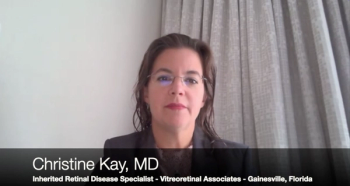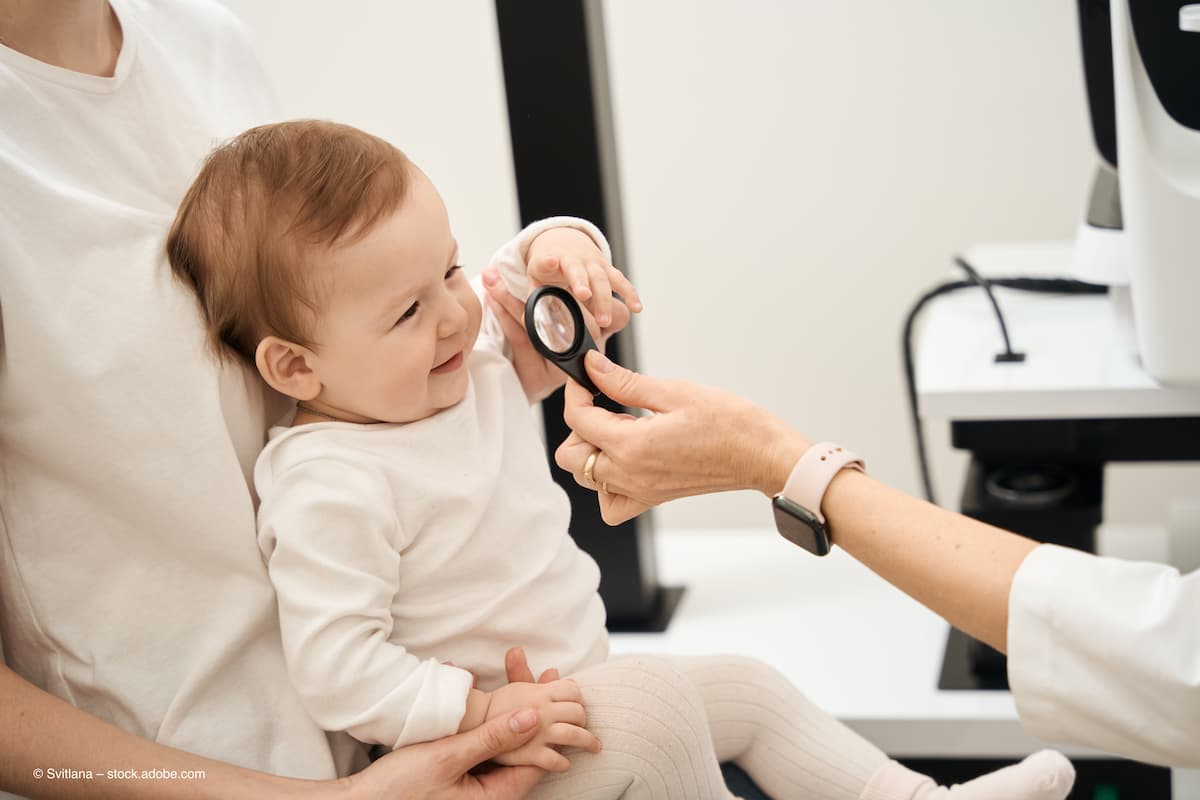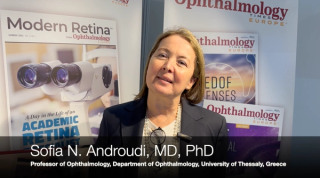
Inherited Retinal Diseases
Latest News
Latest Videos
CME Content
More News

Both therapeutics will leverage AGC Biologics’ BravoAAV suspension platform and use an innovative dual AAV vector approach, which splits the therapeutic gene into 2 halves.

Foundation Fighting Blindness releases 4-year RUSH2A data to public
RUSH2A is an ongoing natural history study for patients with mutations in the USH2A gene causing Usher syndrome type 2A or nonsyndromic retinitis pigmentosa (RP).

Opus Genetics doses first patient in phase 1/2 clinical trial, BIRD-1, evaluating OPGx-BEST1
Best disease, also known as vitelliform macular dystrophy, is a rare, inherited retinal condition causing macular degeneration by mutations in the BEST1 gene, leading to progressive vision loss and potentially blindness.

Q&A: Kenneth Fan on MCO-010 trials for Stargardt disease
Kenneth C. Fan, MD, discusses promising visual improvements from MCO-010 therapy for Stargardt disease at AAO 2025, highlighting future treatment potential.

OPGx-LCA5 is designed to address a form of Leber congenital amaurosis that results from biallelic mutations in the LCA5 gene, which encodes the lebercilin protein, the investigators explained.

PolyActiva and RareSight collaborate to create innovative therapies for rare pediatric retinal diseases, aiming to transform treatment and improve children's vision.

Q&A: Stephen Tsang discusses outcomes in retinitis pigmentosa and Stargardt trials
Stephen Tsang, MD, PhD, reviews promising optogenetic therapy results for retinitis pigmentosa and Stargardt disease, enhancing vision and mobility for patients.

The EXTEND study is a 5-year follow-up of participants who received a single intravitreal injection of MCO-010 in a previously conducted phase 1/2a trial.

The funding will support the completion of the clinical PoC of its AAVB-039 CELESTE study and the completion of the STELLA natural history study.

A mutation-agnostic gene therapy approach offers new possibilities for patients, especially those with inherited retinal diseases.

NYRVANA is the first-in-human trial and is an open-label, multicenter, dose-escalation study investigating the safety, tolerability, and preliminary efficacy of a single intravitreal injection of SPVN20 over 6 months.

A new study reveals a promising drug reduces vision loss in Stargardt disease, showing significant safety and efficacy over 2 years.


The FDA describes the RDEA pilot program as a program to support novel endpoint efficacy development for drugs that treat rare diseases.

A recent study uncovers a novel biomarker for retinal vascular diseases, highlighting the significance of intermittent capillary perfusion in monitoring treatment efficacy.

AAVantgarde’s AAVB-039 gene therapy to treat Stargardt disease receives orphan drug status from FDA
Additionally, the company also received Clinical Trial Authorization (CTA) approval from the UK's Medicines and Healthcare Products Regulatory Agency (MHRA).

FDA grants breakthrough therapy designation to Nacuity’s NPI-001 for retinitis pigmentosa
NPI-001 is Nacuity’s investigational therapy for the treatment of patients with retinitis pigmentosa (RP).

Positive pediatric data emerge from the OPGx-LCA5 phase 1/2 trial of Leber congenital amaurosis type 5
The trial results show promising for the evaluated gene therapy for the treatments of LCA, showing significant vision improvements in pediatric patients.

Navigating the maze: Establishing novel end points for IRD trials
The characteristics of these inherited retinal diseases make it difficult to define objective, clinically meaningful outcomes that are sensitive enough to measure change over the course of a trial.

Q&A: Christine Kay on the REMAIN trial results for patients with retinitis pigmentosa
Christine Kay, MD, presents new findings on MCO-010, a novel optogenetic therapy improving vision in retinitis pigmentosa patients at the Retina Society meeting.

The submission was based on the safety and efficacy data from the phase 3 (RHODOS) and phase 4 (LEROS) studies.

Belite Bio completes its phase 3 trial for tinlarebant, a potential first treatment for Stargardt disease, with results expected in late 2025.

Kwangdong, a top 5 pharmaceutical and healthcare company in Korea, is actively involved in research and development innovation, including “transformational late-stage, high-impact technologies.”

University of Houston researchers receive $3.6 million to examine retinal diseases
Researchers will investigate a gene in the eye that is crucial for normal vision, but can cause retinal diseases when mutated that often lead to blindness.

Beacon Therapeutics shares promising phase 2 trial results for laru-zova, a gene therapy showing potential in treating X-linked retinitis pigmentosa.
































